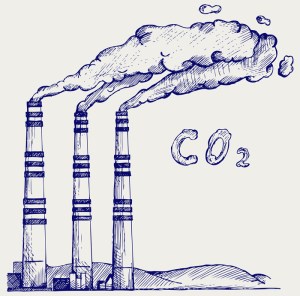Photo by Matt Popovich on Unsplash
A NOSTALGIA FOR THE PAST
Journalists, media institutions and news circulations have always been essential in engaging a society based on democratic values. At its core, democracy is facilitated by participation. Political participation allows members of a democratic nation to hold those in power accountable, while encouraging an ethos of engagement, both within and between differing political cultures. All of the forms this participation takes - in voting, in discourse, in electoral campaigns - are facilitated by the practice of journalism.
As long as the media is the great facilitator of democracy, it would make sense that journalistic values align with democratic principles. According to the Ethical Journalism Network, journalists should strive to create stories on the basis of truth, accuracy, independence, impartiality, humanity and accountability. Yet, with the emergence of the digital age, certain aspects of these set of values have been accused of being “under attack”. The inability for newspapers to adhere to their revenue model that persisted for decades resulted in layoffs, smaller production budgets, and limited timeframes for stories, leaving devoted fans of the newspaper fearful that the uncertain future of news would drastically harm journalistic integrity.
Hence, the presence of a demise. These institutions, previously motivated by the desire to provide high-quality, effective journalism were now driven by a main concern of making profits just to stay afloat. They sought out corporate investors and transitioned to online formats, sacrificing the very concept of democratic values in favour of profit and capitalist accumulation. From the viewpoint of those fearful of the looming death of journalism, this seemed to resemble a formula for the disassemblement of democracy in its truest form.
IMPARTIALITY: AN IMPOSSIBILITY?
The idea of impartiality in itself, is a romanticization, attempting to equate past journalistic institutions with martyrs who fought with the optimism of a future journalistic utopia that coincided with the ultimate values of journalism. These idealists argue that with the collapse of the revenue model, modern news media has become plagued with bias, directly impacting the true ability for these institutions to remain impartial. This equates bias with unprofessionalism, without acknowledging that biases and partisan sources have penetrated all aspects of media, regardless of the time.
The continuous practice of gatekeeping, agenda-setting, and polarization created a culture of discourse that undervalued any viewpoint that aimed to challenge the status quo. Institutionalized media, with established broadcasters and newspapers acted as guards, allowing stories that fit the mainstream conception of what was “normal” in order to please the majority, government and corporations. Minority voices and criticisms of the government were often silenced in favour of a story that satisfied the views of the masses. In keeping with the status quo, while silencing the voices of other democratic participants, traditional media was going directly against fundamental democratic values of participation and discourse.
From challenges of religious freedom in early Europe, to emergence (and inevitable silencing) of the Enlightenment ideals, to pressure on the press in the World Wars, to accusations of “fake news”, government support has often been a great determinant of a media’s success. Although not necessarily funded by government revenues, the influence of states has presented this notion of media capture defined as:
“A form of soft pressure that is ubiquitous and increasing in many parts of the world…in which the news media are controlled either directly by governments or by vested interests networked with politics.”
This government influence over institutionalized media drastically affects what stories are being told, how they’re being portrayed, and who is being left out. As traditional sources have always aimed to increase readership, compliance with political and social norms created the argument of impartiality, which aims to advocate for objective journalism, free from bias. Yet, in its true form, journalism cannot be impartial. As put by Rob Wijnberg
“Behind every report, every feature, every news item, lies a worldview rooted in assumptions ontological (what’s real?), epistemological (what’s true?), methodological (how do we find out?), and moral (why does it matter?).”
By preaching a methodology of objectivity as the ultimate goal, media sources dismiss the presence of biased sources and government influence, and continue to fulfill a fallacy of impartiality while leaving many voices and opinions out of the dominant discourses. In essence, those who advocate for a return to past standards of journalism to relieve the “crisis” overlook the fact that impartial journalism was never a reality in the first place.
FREE MEDIA: OVERLOOKED, BUT ESSENTIAL
So, in a democratic state founded on beliefs of freedom, conversation, and participation, shouldn’t journalism by and for the people be the ultimate goal? Wouldn’t this be the solution to the ongoing crisis that, as it turns out, has deeper roots than we assume?
As with all questions surrounding the changing realm of technological advancement, there’s no clear cut answer. Yet there is one value that should start to take a greater priority in the transmission of news - transparency. It has already been established that biases are a constant in journalism, and objectivity as an ultimate goal is near-impossible to achieve. Transparency, on the other hand, aims to investigate questions such as: Where are the sources from? Who has contributed? Who has been left out? In aiming for the overarching goal of a transparent media system, we can truly facilitate the transition of journalism into the digital age, and diminish the zeitgeist of crisis to embrace the promise of the new age of journalism.
New alternative media, otherwise known as “Free Media”, encompass a variety of media sources that act outside of institutionalized sources formations, and aim to tell untold stories with this value of transparency as a key value. This creates a backbone of democratic communication, as organizations such as The Dominion, Media Indigena, ZNet, and Co-op Radio, identify voices who have historically been neglected, and aim to push them to the forefront of the conversation through the variety of traditional written reporting, radio broadcasts, podcasts or discussion threads. They are based in values of community, advocacy, participation and mobilization. The increasing presence of free media, facilitated by the digital age, allows not only for more representation, but for opportunity to challenge dominant structures that have contributed to marginalization throughout history. Through active criticism of political processes and institutionalized media, free media continuously challenges the status quo, opening up opportunities for a variety of storytelling.
SOLVING THE “CRISIS”
So, is the death of journalism an inevitability? Of course not. Instead, it is evolving and changing with the digital age, bringing both challenges and affordances with it. But to simply retreat back to nostalgic views that neglect the detriments of old media fosters a society of ignorance. Instead, we should begin to acknowledge the democratic potential of this modern era of journalism for what it is - an opportunity to create diversity in the public sphere, and open gates that have been closed for too long.
New, Alternative Media Changing the Game*
Zero Hedge - alternative economic news
Empire Files - American news through videos created by Abby Martin
Corbett Report investigative video news reports promoting open source intelligence
Global Research - clarity to issues pertaining to major political events
FreePress - nonpartisan organization encouraging informed political participation in America
Democracy Now! - independent media and news programming
Z Blogs/Z Net - open discussion through blogs. Bloggers include Noam Chomsky and Michael Albert
*not an exhaustive list
Edited by Artemis Archimandriti





